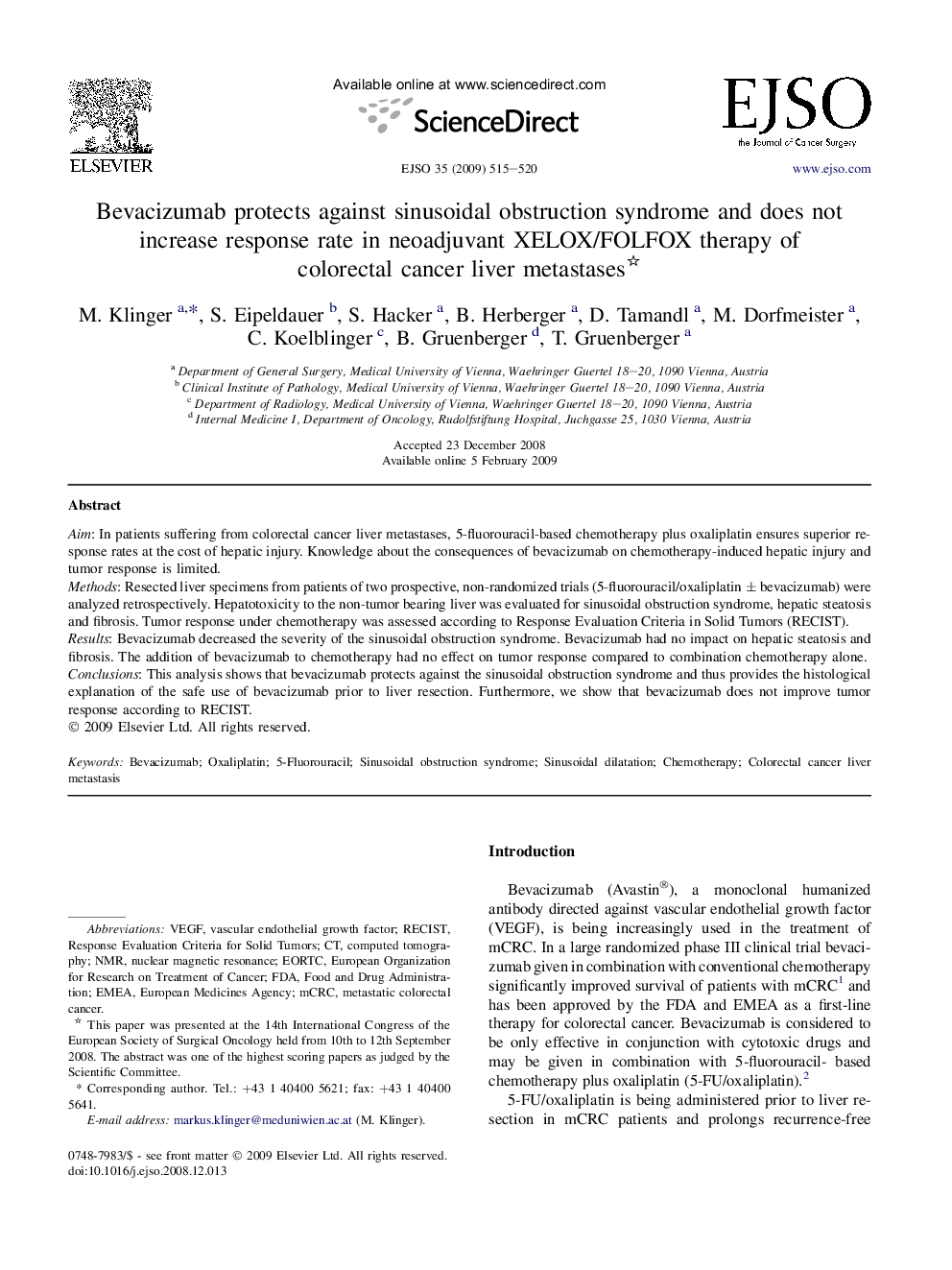| Article ID | Journal | Published Year | Pages | File Type |
|---|---|---|---|---|
| 3987686 | European Journal of Surgical Oncology (EJSO) | 2009 | 6 Pages |
AimIn patients suffering from colorectal cancer liver metastases, 5-fluorouracil-based chemotherapy plus oxaliplatin ensures superior response rates at the cost of hepatic injury. Knowledge about the consequences of bevacizumab on chemotherapy-induced hepatic injury and tumor response is limited.MethodsResected liver specimens from patients of two prospective, non-randomized trials (5-fluorouracil/oxaliplatin ± bevacizumab) were analyzed retrospectively. Hepatotoxicity to the non-tumor bearing liver was evaluated for sinusoidal obstruction syndrome, hepatic steatosis and fibrosis. Tumor response under chemotherapy was assessed according to Response Evaluation Criteria in Solid Tumors (RECIST).ResultsBevacizumab decreased the severity of the sinusoidal obstruction syndrome. Bevacizumab had no impact on hepatic steatosis and fibrosis. The addition of bevacizumab to chemotherapy had no effect on tumor response compared to combination chemotherapy alone.ConclusionsThis analysis shows that bevacizumab protects against the sinusoidal obstruction syndrome and thus provides the histological explanation of the safe use of bevacizumab prior to liver resection. Furthermore, we show that bevacizumab does not improve tumor response according to RECIST.
